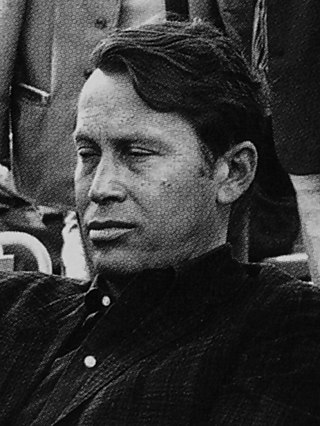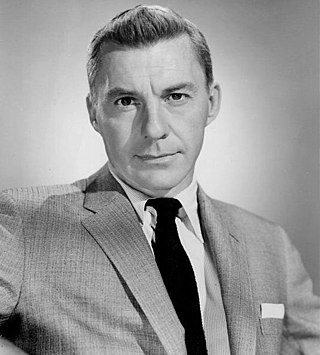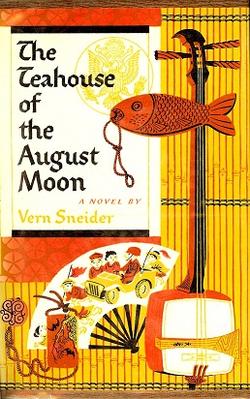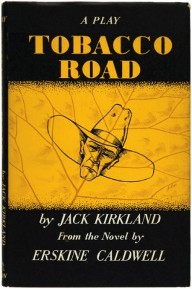Plot summary
In the aftermath of World War II, the island of Okinawa was occupied by the American military. Captain Fisby, a young army officer, is transferred to a tiny Okinawa island town called Tobiki by his commanding officer, Colonel Purdy. Fisby is tasked with the job of implementing "Plan B". The plan calls for teaching the natives all things American and the first step for Capt. Fisby is to establish a democratically elected mayor, chief of agriculture, chief of police, and president of the Ladies League for Democratic Action. Plan "B" also calls for the building of a schoolhouse (Pentagon shaped), democracy lessons, and establishing capitalism through means left up to the good captain's judgment. A local Tobiki native, Sakini by name, is assigned to act as Fisby's interpreter. Sakini, a Puck-like character, attempts to acquaint Fisby with the local customs as well as guide the audiences through the play, providing both historical and cultural framework through his asides and monologues.
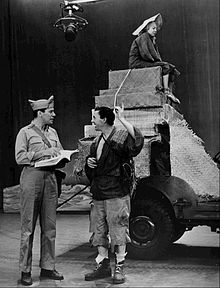
After receiving many gifts from the villagers, including a geisha named Lotus Blossom, Fisby tries to find local products on which to build his capitalist endeavor. He is discouraged when the villagers can not find a market for their handmade products, items like geta (wooden sandals), lacquered bowls, cricket cages, and casas (straw hats). He is also frustrated when the newly elected democratic government votes to build a teahouse (ochaya) for Lotus Blossom with the building supplies designated for his Pentagon-shaped school. Through the villagers, Captain Fisby starts to see the beauty of preserving their culture and a slower way of life. He agrees to build the teahouse and even lands on a moneymaking product – sweet potato brandy. Soon the Cooperative Brewing Company of Tobiki is churning out liquor by the gallon and selling it to all the neighboring military bases.
The gala opening of the teahouse is the moment when Colonel Purdy decides to make his progress inspection and finds Captain Fisby serenading the villagers in his bathrobe with a rendition of "Deep in the Heart of Texas". He is in danger of court martial and reprimanded for misusing government supplies, selling liquor and "not turning the villagers into Americans fast enough". Col. Purdy orders the destruction of all the stills and the teahouse. Sakini and the villagers outsmart the colonel and only pretend to destroy everything, instead hiding everything "quick as the dickens". Their foresight proves fortuitous when Purdy learns that Congress is about to use Tobiki as a model for the success of Plan B. The villagers rebuild the teahouse on stage, and even offer a cup to Col. Purdy in a gesture of goodwill. Like all great comedies, in the end, all is forgiven. The village returns to the rich life they once knew (plus a teahouse, export industry, and geishas), Fisby is touted a hero, and Purdy, we hope will get a brigadier general's star for his wife Grace after all.
Set in the time-frame of the aftermath of World War II and U.S. occupation of the Japanese islands, Teahouse of the August Moon is a comedy whose laughs come from the inability of the American characters to understand Tobiki culture and tradition. However, it is not just a story of culture clash. Through the character of Fisby, we see acceptance and the beauty of making peace with oneself somewhere between ambition and limitations. We also learn, like Fisby, that sometimes the better life is had by taking a "step backward in the right direction".
